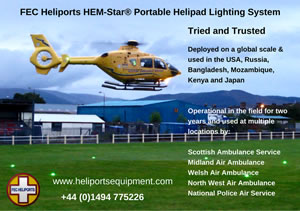World Customs Organization2003-05-27 19:57:17
The Secretary General of the World Customs Organization (WCO) addresses the Ministers for Foreign Affairs from 55 countries at the Ministerial Conference on Drug Routes from Central Asia to Europe
The Ministers for Foreign Affairs from 55 countries seriously affected by trafficking in opium and heroin produced in Afghanistan met in Paris on 22 May 2003. The Secretary General of the WCO addressed the meeting, highlighting two key approaches:
The necessity to combat terrorism and trafficking in drugs, human beings and weapons of mass destruction has a significant impact on border controls. Customs authorities play a primary role in establishing a filter at frontiers. Strengthened controls in order to make borders more secure have to keep pace with new crime trends and threats. The WCO has been developing new ideas and methods to meet these challenges. A joint approach to risk management and risk assessment systems, based on electronic exchange of information at the earliest possible stage, would allow the implementation of export controls based on shared responsibilities of States. The use of modern technology and an appropriate level of equipment and human resources (specialized staff with the proper training) are part of the WCO concept. A capacity building strategy also has to be devised in order to support developing countries in particular. The protection of legal trade nevertheless remains an integral part of this concept, requiring a strong partnership between Customs and business.
With respect to co-operation and co-ordination, greater co-operation is required at national, regional and international level, on a multilateral and bilateral basis and between the competent law enforcement agencies. In order to make best use of the financial and human resources available, duplication of work has to be avoided and international funding must be utilized. In this respect, the WCO is ready to contribute to enhanced co-operation under a United Nations umbrella, acknowledging the strategies and programmes being implemented by the United Nations Office on Drugs and Crime (UNODC).
In his conclusions, the Chairperson of the Conference, Dominique de VILLEPIN (French Minister for Foreign Affairs), stressed the importance of co-operation between States, and especially their justice, police and Customs services. He recommended closer co-operation between the various international organizations under the auspices of the UNODC, and called for the implementation of innovative programmes.
The Secretary General of the WCO put forward the idea of "Operation TAMERLANE", which would be launched at the beginning of 2004 and would involve co-operation between the different Customs and police services in this part of central Asia.
The Ministers for Foreign Affairs from 55 countries seriously affected by trafficking in opium and heroin produced in Afghanistan met in Paris on 22 May 2003. The Secretary General of the WCO addressed the meeting, highlighting two key approaches:
The necessity to combat terrorism and trafficking in drugs, human beings and weapons of mass destruction has a significant impact on border controls. Customs authorities play a primary role in establishing a filter at frontiers. Strengthened controls in order to make borders more secure have to keep pace with new crime trends and threats. The WCO has been developing new ideas and methods to meet these challenges. A joint approach to risk management and risk assessment systems, based on electronic exchange of information at the earliest possible stage, would allow the implementation of export controls based on shared responsibilities of States. The use of modern technology and an appropriate level of equipment and human resources (specialized staff with the proper training) are part of the WCO concept. A capacity building strategy also has to be devised in order to support developing countries in particular. The protection of legal trade nevertheless remains an integral part of this concept, requiring a strong partnership between Customs and business.
With respect to co-operation and co-ordination, greater co-operation is required at national, regional and international level, on a multilateral and bilateral basis and between the competent law enforcement agencies. In order to make best use of the financial and human resources available, duplication of work has to be avoided and international funding must be utilized. In this respect, the WCO is ready to contribute to enhanced co-operation under a United Nations umbrella, acknowledging the strategies and programmes being implemented by the United Nations Office on Drugs and Crime (UNODC).
In his conclusions, the Chairperson of the Conference, Dominique de VILLEPIN (French Minister for Foreign Affairs), stressed the importance of co-operation between States, and especially their justice, police and Customs services. He recommended closer co-operation between the various international organizations under the auspices of the UNODC, and called for the implementation of innovative programmes.
The Secretary General of the WCO put forward the idea of "Operation TAMERLANE", which would be launched at the beginning of 2004 and would involve co-operation between the different Customs and police services in this part of central Asia.
For more information contact:
30, Rue Du Marché
B-1210 BRUSSELS
Belgium
Tel: +32 2 209 92 11
Fax: +32 2 209 92 92
